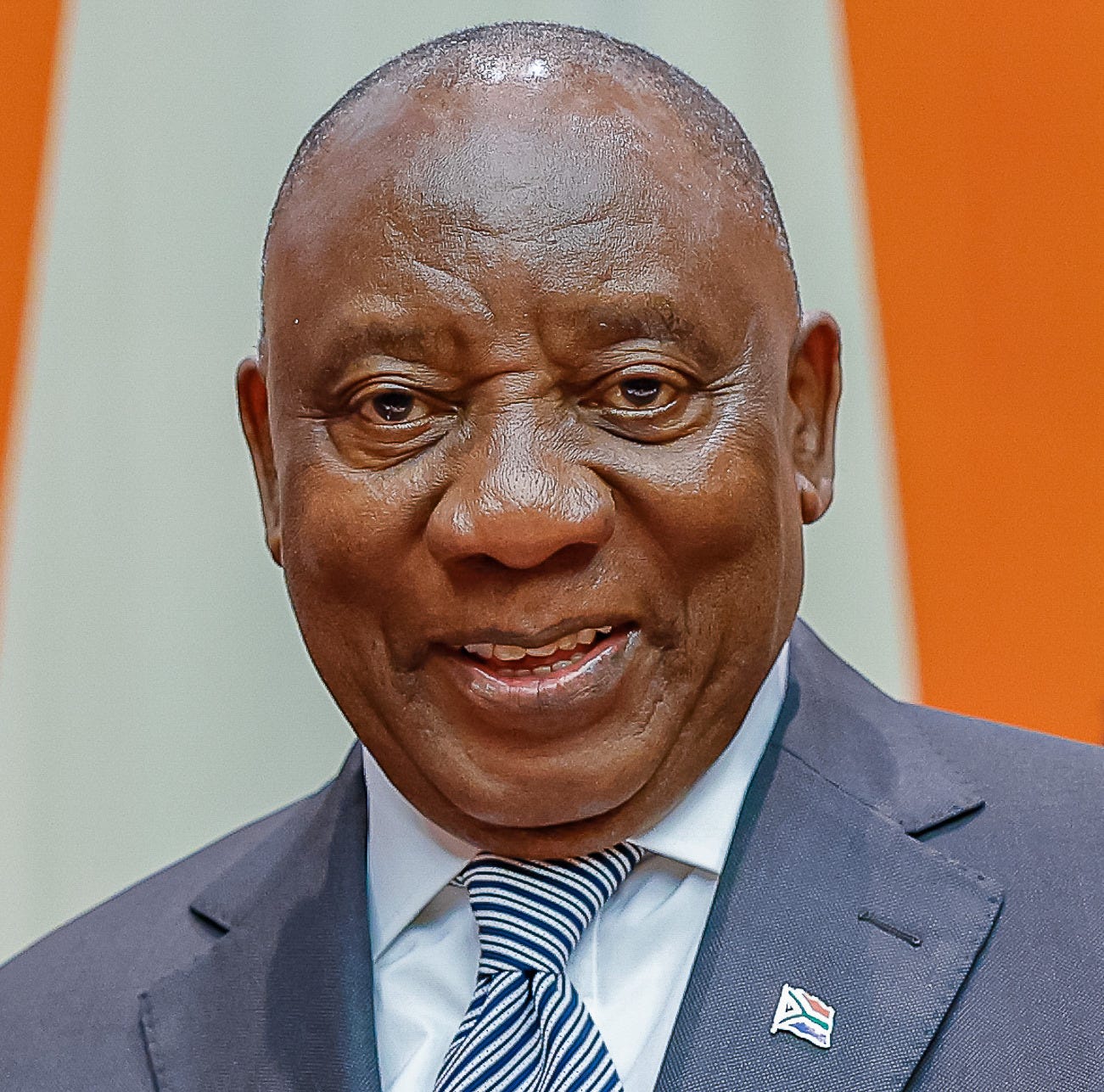BEE Is Killing South Africa
There can be no progress in South Africa until we do away with BEE.

President Cyril Ramaphosa’s complete wilful ignorance over the harm that Black Economic Empowerment (BEE) has done to the country is not just indicative of his incompetence but is downright malicious. Since 1994 no single piece of legislation has done as much harm to this country as BEE and its racially repressive adjacent regulations.
Since it was passed into law in 2003, BEE has seen South Africa’s unemployment rate go from 19.73% to a conservative figure of 32.9%; the highest unemployment rate amongst the G20.
The stringent and chaotic requirements of BEE compliance has led to a sharp decline in foreign investment and the expansion of local companies. The European Union (EU), itself not exactly a bastion of simplistic deregulation, found that BEE was overly convoluted, increased operational costs, and encouraged rent-seeking and corruption.
Dawie Roodt, Chief Economist of the Efficient Group, has argued that President Ramaphosa’s defence of BEE is directly chasing away investors. The World Bank has further noted that BEE and other state interventions do more to enable corruption than improve economic growth.
BEE’s stated aim of racial redress has also not worked. Rather than ensuring that the previously disadvantaged are given a slice of a productive business to spread the wealth, the entire BEE system has created a class of political elites who use their positions to force businesses to give them lucrative BEE deals and free shares in exchange for a rubberstamp.
Professor William Gumede of the Wits School of Governance wholeheartedly condemns BEE, citing that it leads to “increased poverty, unemployment and inequality”. He argues that BEE only benefits a tiny group of politically connected people, stating that at least R1 trillion has been transferred between under 100 people since 1994 thanks to BEE. A far cry from the stated aims of benefitting the poor and disenfranchised millions.
Businesses faking their BEE credentials have been identified as a concern in itself, but the concern should rather be that they are being forced to abide by a ludicrous set of regulations in the first place.
BEE also hurts the public fiscus, as government departments and municipalities are required to do business with BEE procurers who are often corrupt and incompetent. On top of that, a premium is put on BEE contracts, tagging an extra 11% - 25% more on the cost of procurement. This costs taxpayers billions in what amounts to just corruption and waste.
It is easy to not understand BEE. I doubt President Ramaphosa actually understands it himself. It is a Byzantine set of regulations, scorecards and requirements that have become increasingly stricter with every decade.
In a nutshell, BEE attempts to encourage black ownership of businesses and assets through requiring businesses to have a percentage of their businesses owned and managed by black individuals. The initial incentive was to only award licenses and government tenders to BEE compliant businesses, but more recent amendments and adjacent legislation have seen companies be faced with fines for non-compliance.
The noose is tightening, and what was once an inconvenient set of requirements to do business with the government is now becoming a stringent and totalitarian set of requirements to do business at all.
When businesses do comply, and give portions of their businesses to BEE partners, and appoint black managers regardless of local demographics or staff merit, they are still victims of the system and its rapidly increasing demands. BEE partners are often corrupt, politically connected elites, who keep demanding more and more from the business, while contributing nothing. And politically appointed managers destroy staff morale, as hard-working employees who don’t fit the preferred demographics of the government are left without any room for career advancement.
Before the Bantustans and the pass laws, proto-Apartheid was practiced in the form of job reservations. Black and non-white employees were banned by regulation from receiving promotions. Racial quotas protected white employees from competition. This led to the abhorrent system of Apartheid, which not only caused South Africa to become a stagnant and unsustainable economy but destroyed its soul.
Now, the ANC and President Ramaphosa want to do it again. Because racialised legislation, no matter if for redress or revenge, will always lead to suffering for everyone except the most corrupt elites. BEE destroys South Africa’s economy, destroying jobs and keeping millions locked in poverty.
But I think President Ramaphosa doesn’t care. He only cares about self-enrichment. BEE has made him and his allies billions. And the idea of racial vengeance is something that our president has candidly supported in the past.
Dr Mario Oriani-Ambrosini, in his memoirs, wrote about a conversation with Ramaphosa where he spoke about the ANC’s strategy to “deal with the whites”. He likened the strategy to “boiling a frog alive”. One must raise the temperature slowly so not to alarm the frog. So, implement policies slowly. Take only small chunks at a time. Seize only a little bit of property at a time. Allow a little bit of hate speech to slip through the cracks. And incrementally turn up the heat.
And keep taking more and more, never enough at a time to spark a rebellion, but enough that when the victims of this malice and avarice finally realise what’s going on, it’s too late.
BEE is the most fundamental symbol of the ANC’s vile hatred, masked as politically correct redress. It is the ANC’s neo-Apartheid and vengeance, all while enabling looting and the enrichment of lazy, capricious elites.
There can be no progress in South Africa - economically, spiritually or socially - until we do away with it and all racialised legislation.
Nicholas Woode-Smith is the managing editor of the Rational Standard. He is a senior associate of the Free Market Foundation.


